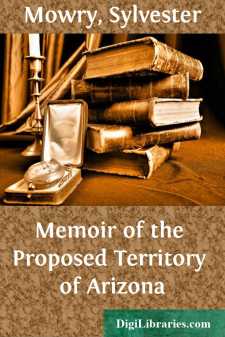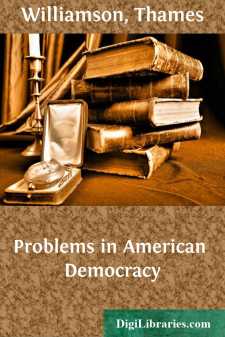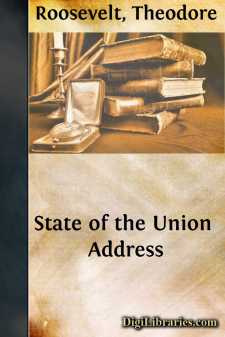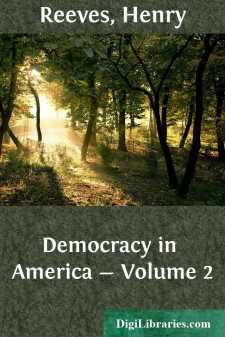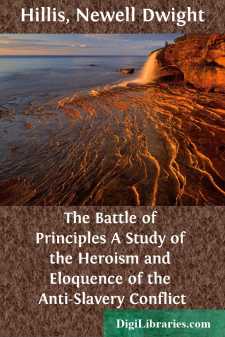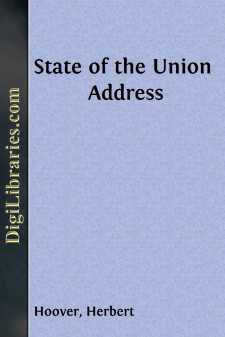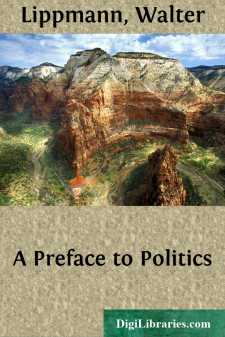Political Science
- Conspiracy & Scandal Investigations 1
- Constitutions 7
- Economic Conditions 10
- General 46
- Government 6
- History & Theory
- Peace 1
History & Theory Books
Sort by:
by:
Sylvester Mowry
"The NEW TERRITORY of ARIZONA, better known as the GADSDEN PURCHASE, lies between the thirty-first and thirty-third parallels of latitude, and is bounded on the north by the Gila River, which separates it from the territory of New Mexico; on the east by the Rio Bravo del Norte, (Rio Grande), which separates it from Texas; on the south by Chihuahua and Sonora, Mexican provinces; and on the west by...
more...
PREFACE There is an increasing demand for a textbook which will bring the student into direct contact with the great current issues of American life, and which will afford practical training to those who soon must grapple with the economic, social, and political problems of our own time. It is with the hope of meeting such a demand that this text has been prepared. The plan of the book calls for a word...
more...
What the feast of the Passover was to the children of Israel, that the days between the nineteenth of December and the fourth of January—the Yuletide—are and will remain to the people of New England. The Passover began "in the first month on the fourteenth day of the month at even," and it lasted one week, "until the one and twentieth day of the month at even." It was the period of...
more...
To the Senate and House of Representatives: The Congress assembles this year under the shadow of a great calamity. On the sixth of September, President McKinley was shot by an anarchist while attending the Pan-American Exposition at Buffalo, and died in that city on the fourteenth of that month. Of the last seven elected Presidents, he is the third who has been murdered, and the bare recital of this...
more...
LAURIER: A STUDY IN CANADIAN POLITICS THE CLIMB TO POWER. THE life story of Laurier by Oscar D. Skelton is the official biography of Sir Wilfrid Laurier. Official biographies of public men have their uses; they supply material for the definitive biography which in the case of a great man is not likely to be written by one who knew him in the flesh. An English public man, who was also a novelist and...
more...
by:
Henry Reeves
Chapter I: Philosophical Method Among the Americans I think that in no country in the civilized world is less attention paid to philosophy than in the United States. The Americans have no philosophical school of their own; and they care but little for all the schools into which Europe is divided, the very names of which are scarcely known to them. Nevertheless it is easy to perceive that almost all the...
more...
I RISE OF AMERICAN SLAVERY: GROWTH OF THE TRAFFIC The history of the nineteenth century holds some ten wars that disturbed the nations of the earth, but perhaps our Civil War alone can be fully justified at the bar of intellect and conscience. That war was fought, not in the interest of territory or of national honour,—it was fought by the white race for the enfranchisement of the black race, and to...
more...
by:
Thomas Jefferson
LETTER I.—TO LEVI LINCOLN, August 30, 1803TO LEVI LINCOLN.Monticello, August 30, 1803. Deak. Sir, The enclosed letter came to hand by yesterday's post. You will be sensible of the circumstances which make it improper that I should hazard a formal answer, as well as of the desire its friendly aspect naturally excites, that those concerned in it should understand that the spirit they express is...
more...
by:
Herbert Hoover
To the Senate and House of Representatives: The Constitution requires that the President "shall, from time to time, give to the Congress information of the state of the Union, and recommend to their consideration such measures as he shall judge necessary and expedient." In complying with that requirement I wish to emphasize that during the past year the Nation has continued to grow in strength;...
more...
by:
Walter Lippmann
INTRODUCTION The most incisive comment on politics to-day is indifference. When men and women begin to feel that elections and legislatures do not matter very much, that politics is a rather distant and unimportant exercise, the reformer might as well put to himself a few searching doubts. Indifference is a criticism that cuts beneath oppositions and wranglings by calling the political method itself...
more...


